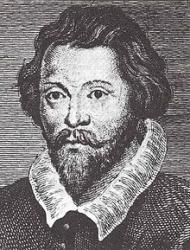
1859 - 1940 Composer of "[Oh, sing unto the Lord a new song]" in Young Men's Chorus Adams, Carrie Belle (Wilson). (Oxford, Ohio, July 28, 1859-1940). Father, David Wilson, song writer, teacher of music. Married, 1880 to Allyn G. Adams, moved to Terre Haute, Indiana. Director and organist, First Congregational Church; Central Christian Church. Teacher (1887-1895), Indiana State Normal School. Wrote many anthems and cantatas, secular and religious, many published by Lorenz.
--Keith C. Clark, DNAH Archives
===================
Mrs. Carrie B. (Wilson) Adams was born in Oxford, Ohio, July 28, 1859. Her father, Mr. David Wilson, was author of a number of songs and books, also a singing teacher of note in his day, and her mother was quite musically inclined.
Her experience with her father in elementary and advanced class work, in children's and harmony classes, her years of musical participation in solo work and in accompanying, in the organization and leadership, not only of choirs, but also of great choral organizations, her close touch with singers of elementary grade, as well as those of great skill and reputation, have given her a breadth of musical thought and practical power of adaptation that constantly enrich her work of composition.
Miss Carrie B. Wilson became Mrs. Allyn G. Adams in 1880, and soon after located in Terre Haute, Ind., where her husband was a leading bass singer and interested in large commercial enterprises. Mrs. Adams soon became a leading figure in the musical life of that enterprising city, and has been actively identified with the Choral Club, Treble Clef Club, Rose Polytechnic Glee Club, First Congregational Church and Central Christian Church choirs, as director, chorister and organist. From 1887 to 1895 she occupied the chair of music in the Indiana State Normal School.
Her first anthem was published in 1876. Among her best known publications are four anthem books — "Anthem Annual, Nos. 1 and 2," and " Royal Anthems, Nos. 1 and 2" ; "Music for Common Schools"; two sacred cantatas, "Redeemer and King " and "Easter Praise" ; an operetta for church and school use, "The National Flower"; a group of Shakespeare songs from "As You Like it," and a large number of anthems,
male choruses, ladies' quartets and miscellaneous pieces in octavo form.
http://archive.org/stream/biographyofgospe00hall/biographyofgospe00hall_djvu.txt
Carrie B. Adams



